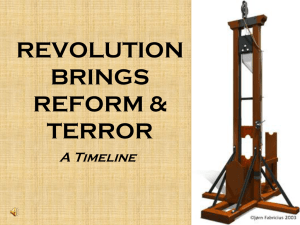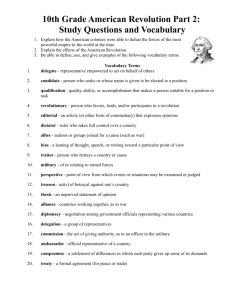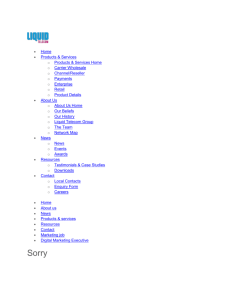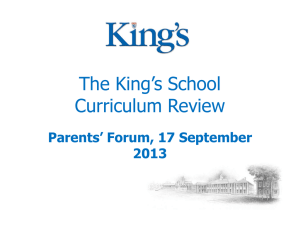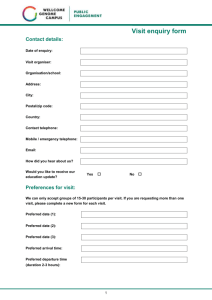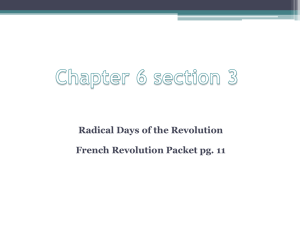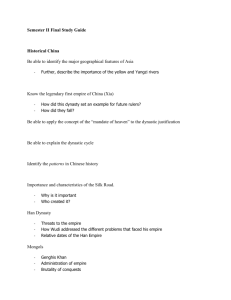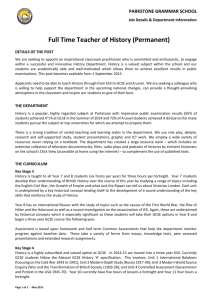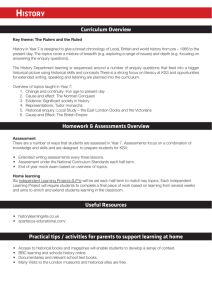Subject: HISTORY Level - Chatham Grammar School For Girls
advertisement
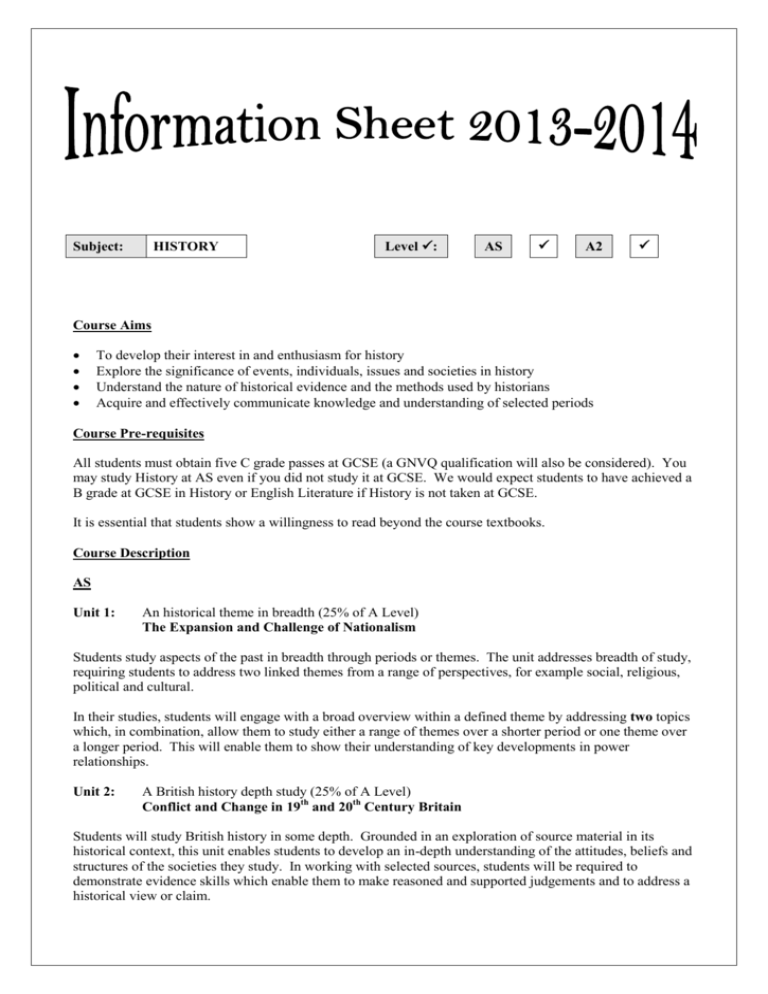
Subject: HISTORY Level : AS A2 Course Aims To develop their interest in and enthusiasm for history Explore the significance of events, individuals, issues and societies in history Understand the nature of historical evidence and the methods used by historians Acquire and effectively communicate knowledge and understanding of selected periods Course Pre-requisites All students must obtain five C grade passes at GCSE (a GNVQ qualification will also be considered). You may study History at AS even if you did not study it at GCSE. We would expect students to have achieved a B grade at GCSE in History or English Literature if History is not taken at GCSE. It is essential that students show a willingness to read beyond the course textbooks. Course Description AS Unit 1: An historical theme in breadth (25% of A Level) The Expansion and Challenge of Nationalism Students study aspects of the past in breadth through periods or themes. The unit addresses breadth of study, requiring students to address two linked themes from a range of perspectives, for example social, religious, political and cultural. In their studies, students will engage with a broad overview within a defined theme by addressing two topics which, in combination, allow them to study either a range of themes over a shorter period or one theme over a longer period. This will enable them to show their understanding of key developments in power relationships. Unit 2: A British history depth study (25% of A Level) Conflict and Change in 19th and 20th Century Britain Students will study British history in some depth. Grounded in an exploration of source material in its historical context, this unit enables students to develop an in-depth understanding of the attitudes, beliefs and structures of the societies they study. In working with selected sources, students will be required to demonstrate evidence skills which enable them to make reasoned and supported judgements and to address a historical view or claim. A2 Unit 3: Depth study and associated historical controversy (30% of A Level) Politics, Protest and Revolution Students undertake a study in some depth at a more demanding level than that required in Unit 2. Students gain a firm understanding both of the selected chronology and of key issues, problems and debates associated with it. Each of these studies in depth enables students to explore the nature of challenges and conflict both within the period and relating to the societies and/or political systems studied. Students demonstrate their understanding by answering an essay question requiring them to reach a developed and substantiated judgement. The unit also enables students to work with secondary sources selected to provide evidence of differing views about defined associated historical controversies. Making use of evidence skills developed in Unit 2 and elsewhere, students reach judgements grounded in knowledge of the relevant historical issues and overall context by use of analysis, cross-referencing and evaluation of historical claims. Unit 4: Historical enquiry (20% of A Level) Students address key aspects of a chosen theme over a period of at least 100 years in order to develop their understanding of the process of change over a long period. They will investigate issues relating to their causes and consequences, both long- and short-term, and will demonstrate an understanding of factors that may accelerate, consolidate or retard the process of change. Students will follow a short introductory course which provides an overview of the key strands of development in the chosen topic over a period of at least 100 years. The course will provide the context for students’ enquiries. Students will complete an assignment in two parts. Each part is equally weighted within the marks allocated. Part A will comprise an enquiry in depth into the short-term significance of a key event or individual within the period of study. In Part B, students will set their chosen event or individual in a broader context, exploring the process of change within the wider timeframe. The maximum permitted word length of the total assignment is 4000 words. Topics Covered AS Unit 1: The Road to Unification: Italy, c1815-70 In which we will consider: Opposition to autocratic and foreign rule in Piedmont, Tuscany and Venice; the Carbonari in Naples; republicanism and Young Italy – the influence of Mazzini to 1848; the legacy of the 1848 revolutions. The roles of Cavour, Victor Emmanuel and Garibaldi; the role of the Church. The importance of foreign intervention and involvement in the 1850s and 1860s: France and Austria. The unification process, 1859-70. Unit 1: The Collapse of the Liberal State and the Triumph of Fascism in Italy, 1896-1943 Where we will examine: Weaknesses of the political system and attempts to stabilise it from 1903 under Giolitti; social discontent and political disorder, 1896-1912 The impact of the First World War on Italy and its impact on the Liberal state, 1918-23: Mussolini and the message and appeal of Fascism, 1919-22. Power and control in Fascist Italy: propaganda; terror; the PNF (Partito Nazionale Fascista); the relationship of the regime with the Church and the old elites. Building the new Roman Empire: Abyssinia, Spain and Italy’s diplomatic and military preparations for war, 1933-41. Unit 2: Britain, c1860-1930: The changing Position of women and the Suffrage Question Which will include: The changing personal status of women: marriage, divorce, children and property; challenges to the ‘angel in the house’ concept. Women’s changing role within the political system: participation in local government; origins and impact of the suffragist and suffragette campaigns; the impact of the First World War on the suffrage question. Attitudes of politicians, Parliament and the public to the suffrage question; the Liberal Government, 1906-14; the Parliament At (1918), the Equal Franchise Act (1928) and their immediate impact. Changing educational opportunities for women and girls and the impact of these for workplace opportunities; the opening of universities and professions to women. A2 Unit 3: France, 1786-1830: Revolution, Empire and Restoration Which will examine: The onset of revolution and the collapse of absolute monarchy, 1786-89. Terror and reaction, 1793-99: war and terror; the Thermidorean reaction and the Directory. France under Napoleon, 1799-1807: from consulate to Empire; Napoleon’s domestic reforms. The Bourbons restored: Louis XVIII and the Charter; Charles X and the Revolution of 1830. The Unit will also deal with the following associated controversies: Why did constitutional monarchy fail in the years 1789-92? Why did the Napoleonic Empire collapse in 1814? Unit 4: The Making of Modern Russia, 1856-1964 Focus: Similarities and differences between the rule of the Tsars and communist rule and the impact on the peasantry of the main economic changes throughout the period: The nature of Tsarist rule in Russia, 1856-1917. The structure of the Soviet system. The attempt to reform Stalin’s Russia to 1964. A comparison between dictators, communist leaders and Tsars. This Unit is a historical enquiry in two parts as described above in the course description. Units 1, 2 and 3 are examined; Unit 4 does not have a written examination. Course Skills An ability to evaluate and analyse information. Independent research skills. Critical analysis of different types of evidence. Develop communication skills, both oral and written, including essay skills. Time management. Love of reading, willingness to read and write extensively and intensively. Assessment Examination Board: EDEXCEL Written examination includes for Unit 1 – 3, Historical enquiry in two parts, 4000 maximum. Dates of Assessment June. What Next? Career Routes: foundation for careers like journalism, law, civil service, business, personnel work, accountancy. University Courses: Law, History, Politics, Media related. History combines well with Maths and Science subjects to create an attractive portfolio of qualifications, enabling a student to move onto a university science – based course. Combined with English and a modern foreign language it would provide a good basis for an arts or languages based degree. Other Benefits: We aim to produce articulate and cultured students.
